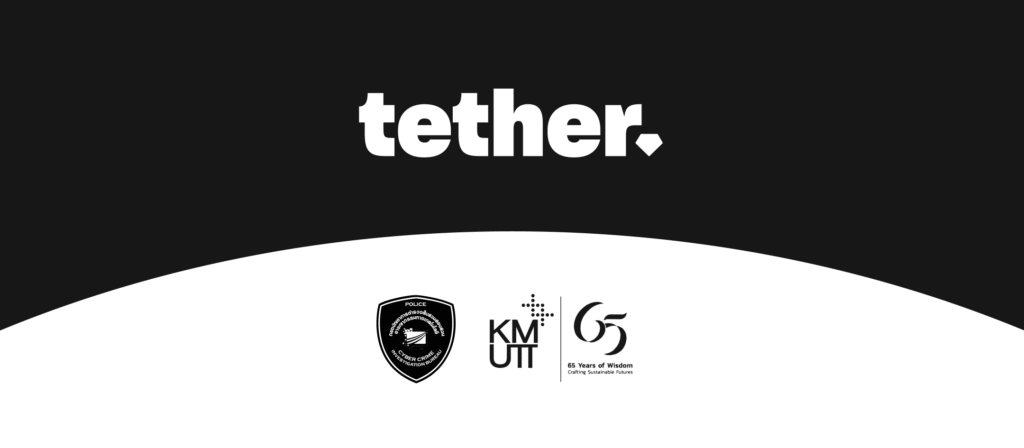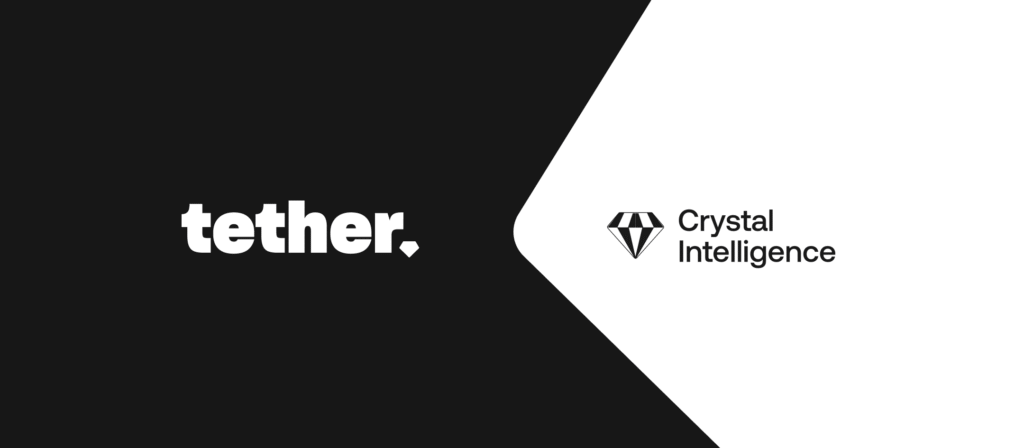Since Tether’s settlement with the New York Attorney General’s Office, it has completed its quarterly reporting obligations. Tether remains committed to transparency and prioritizes the privacy and security of our customers above all else.
On the heels of this settlement, CoinDesk sought public disclosure of materials relating to Tether’s first quarterly report under FOIL. Tether had previously opposed this disclosure to prevent public dissemination of confidential customer data and sensitive proprietary information – both of which could be exploited by malicious actors. After fiercely defending this, Tether dropped its opposition, allowing CoinDesk and other media access to these documents to prove its commitment to transparency and openness over further, unproductive U.S. litigation.
Tether is in a completely different position compared to 2 years ago. It demonstrated, leading the industry during the biggest black swan events in 2020 and 2022, that its reserves are extremely liquid, of high quality and ready to be made available to support any size of redemption, as shown in 2022, when Tether repaid US$7 billion in 48 hours, almost 10% of its reserves at that time. This is just an example of the strength that we can bring to the table as the public stress tests our infrastructure.
Tether's transparency regarding its lending program in the most recent attestation is crystal clear. There is absolutely nothing new to unveil, as we have consistently upheld our commitment to openness. Tether has never and will never put the integrity of its reserves at risk. This has been proven time and time again, not only by its unwavering ability to fulfill redemptions without hesitation but also through the utmost transparency of its reserves.
Tether's commitment to maintaining the highest standards extends to its diligent development of risk metrics and risk measurement processes. These robust mechanisms enable its investment and financial teams to thoroughly evaluate the risk associated with any of the company's financial interactions. With a steadfast understanding of both the lending business and the regulatory landscape, Tether proactively works towards achieving and sustaining its business objectives while upholding its unwavering risk management culture.
Furthermore, the majority of our commercial papers have always maintained an A2 or better rating. None of our past statements have undergone any alterations. We stand firm in our unwavering dedication to accountability and to maintaining the highest standards.
The published information, if properly read and understood, only demonstrates publicly the legitimacy of Tether’s business and the existence of its reserves. But as has happened many times befores, both towards Tether and in general towards the whole crypto industry, information is purposely taken in isolation or distorted to launch a clickbait story.
Tether is proud to be the leading stablecoin and a force for good in the community. The company takes pride in the deep liquidity of its reserves, in its strength and stability, tested throughout many black swan events that wrecked parts of the crypto industry but also the traditional financial industry. Tether will always defend its customers, its personnel, and its community against attacks.
As this information becomes public, Tether wants to provide a factual point of reference about what the materials do and do not contain
-
Among the documents disclosed are statements from Tether’s banks showing the full existence of its banking relationships and reserves, as demonstrated by our publicly-disclosed, independent, third party assurance attestations.
-
The statements show how Tether has been applying best-in-class asset management concepts: short-term investments and diversification, which is clearly visible from the investments listed in the various bank statements.
-
The materials do not represent Tether today (since the data received by the media outlets offers only a limited view of old data, more than 2 years old). Tether, among other actions, reduced its commercial paper holdings to zero in mid-2022, and drastically reduced its secured loans portfolio, with the aim to bring it to zero in the coming months.
Tether was the first to disclose the composition of its reserves, and continues to provide quarterly assurance attestations completed by independent accountants. Tether’s attestations evolved over time, providing more transparency compared to earlier ones provided to the New York Attorney General’s Office. In fact, Tether’s latest attestation showed a record net profit of US$1.48 billion, which brought Tether’s reserves surplus to another record high of US$2.44 billion, and a reduction of bank deposits by over 90%.
The attestation also shows that Tether is continuing its commitment to reduce its secured loans to zero, winding down from 8.7% to 6.5%, and that Tether’s US Treasury holdings reached an all-time high of over US$53 billion – representing more than 64% of its total reserves.
Tether is committed to continue being a transparency leader in crypto, and our continued actions in getting information to the community and its stakeholders, and demonstrating full backing, speaks to that commitment.
Additionally, Tether cooperates regularly with law enforcement, having assisted in well over 150 investigations across four continents. Over the last 18 months alone, Tether has recovered around $200 million in USD₮ in compliance with requests from regulators and law enforcement and returned it to their legitimate owners.
Ultimately Bloomberg, CoinDesk or any other media outlet’s decision to present this information to its readers was likely done in haste with little attention to current events or facts. We do not condone this behavior but our priorities lie with our customers and our ongoing support of the greater crypto community.
______________________________________________________________________________________________
What happened on June 15, 2023?
Earlier this year, Tether, the premier stablecoin, completed its reporting obligations to the New York Attorney General’s Office under the terms of its 2021 settlement. That settlement called for reporting about Tether’s reserves each quarter for two years. Tether fully honored that obligation, and there has been no suggestion that the disclosures were incomplete or that the reserves were ever inadequate. We are pleased to have completed our obligations under the settlement. Today, Tether is stronger than ever, with its largest market cap in history.
Shortly after the settlement in 2021, CoinDesk and other parties sought, under New York’s Freedom of Information Law, public disclosure of materials relating to the first of Tether’s quarterly reports. On June 15, 2023, the New York Attorney General’s Office provided responsive documents to CoinDesk and others. They provided these documents because Tether decided to drop its opposition to the FOIL requests.
Why did Tether/Bitfinex not perfect the appeal?
Tether initiated these proceedings in the first instance to prevent the public dissemination of confidential customer data and to prevent the use of sensitive commercial information that could potentially be exploited by malicious actors. However, our ongoing and demonstrable commitment to transparency means that we must prioritize openness over further time-consuming and unproductive U.S. litigation that distracts from the real issues facing our community.
If Tether/Bitfinex were going to disclose this information, why wait until now to just stop fighting? Why was this spot in the proceedings chosen specifically?
At this point in the proceedings, Tether had to decide whether to perfect its appeal. The sensitivity to this information becoming public is not the same as two years ago, at least as it pertains to Tether’s reserves. At this stage, we need to prioritize openness over further time-consuming and unproductive U.S. litigation that distracts from the real issues facing our community.
Does Tether/Bitfinex endorse releasing customer information to news outlets
Absolutely not. One of the reasons that Bitfinex and Tether resisted CoinDesk’s proceeding under FOIL is that they wanted to prevent the public dissemination of customer data. We call upon CoinDesk and others to not publicly share any past or current customer names and not to thereby put anyone in the community at physical or digital risk.
Was your hand forced on this matter?
Not at all. Tether initiated these proceedings in the first instance to prevent the public dissemination of confidential customer data and to prevent the use of sensitive commercial information that could potentially be exploited by malicious actors. And we still call upon CoinDesk and others to not publicly share any past or current customer names and not to thereby put anyone in the community at physical or digital risk. We could have proceeded with the appeal, however, our ongoing and demonstrable commitment to transparency means that we must prioritize openness over further time-consuming and unproductive American litigation that distracts from the real issues facing our community.
Tether mentioned to not have exposure to Chinese commercial papers?
That is false. Tether always refuted the wild rumors about having exposure to, for example, Evergrande. Again, that was categorically false and demonstrated by these disclosures.
Ok, but why so much exposure to Chinese commercial paper?
Tether’s exposure to Chinese commercial paper was predominantly in the banking sector but all Chinese paper held was liquid and issued by large and well known issuers in the international Commercial paper market. All of these issuers were stable and much of this paper was and is held by some of the world’s largest investment managers within conservative portfolios. The Chinese banking-related commercial paper at issue was rated A1 or better.
Furthermore, it’s worth noting that Tether reduced its commercial paper holdings to zero last year. Tether did not lose a dime on any commercial paper, including the Chinese commercial paper.
What role did Bitfinex play in the context of the reserves adequacy?
Bitfinex was the borrower on an interest-bearing loan that has been fully repaid in 2021, ahead of schedule. That lending facility is now closed and cannot be re-opened. Bitfinex has also been Tether's favourite choice for the purchase of BTC. Tether is considered an ordinary user.
Are collateral wallets controlled by Tether? Who are the clients providing this collateral? How is the collateral valued?
Collateral wallets are in full control of Tether. Collateral is valued at market price and an efficient system of margin call has been implemented. Tether has historically engaged in lending transactions – disclosed in our independent, third party assurance attestations – to a select group of larger Tether customers. These loans are overcollateralized and Tether has never lost a penny on them, unlike some in traditional finance and elsewhere in the community that have engaged in pinky-swear lending. Tether stands for financial freedom and is not disclosing its clients’ names in order to protect their privacy. We call upon anyone receiving this information to not disclose wallet addresses, names, and other identifiable information that could potentially put the safety, security, and privacy interests of third parties at risk.
Several clients' individual and corporate accounts were closed? Should these accounts ever have been opened?
We regret these names could be made public by media agencies, as Tether believes in protecting its customers' privacy. It's worth noting that, if made public, the information would be made publicly available not by Tether, but by the New York Attorney General’s Office and by media outlets. We do not want to comment on any individual relationship, but everyone did pass the strict compliance checks at onboarding and ongoing monitoring required by Tether’s compliance policies.
Okay, if you’re being so transparent, can you share the documents with us?
No. We have abandoned efforts to stop CoinDesk and others in a bid to prioritize openness over further time-consuming and unproductive U.S. litigation that distracts from the real issues facing our community. However, that is not the same as our publishing the information ourselves. We continue to believe that information in these disclosures could be used to dox present and/or future clients. Furthermore, our compliance policies might potentially be used to circumvent our controls and undermine our terms of service. We will not expose our customers to danger or ourselves to any legal claim by divulging this information.








